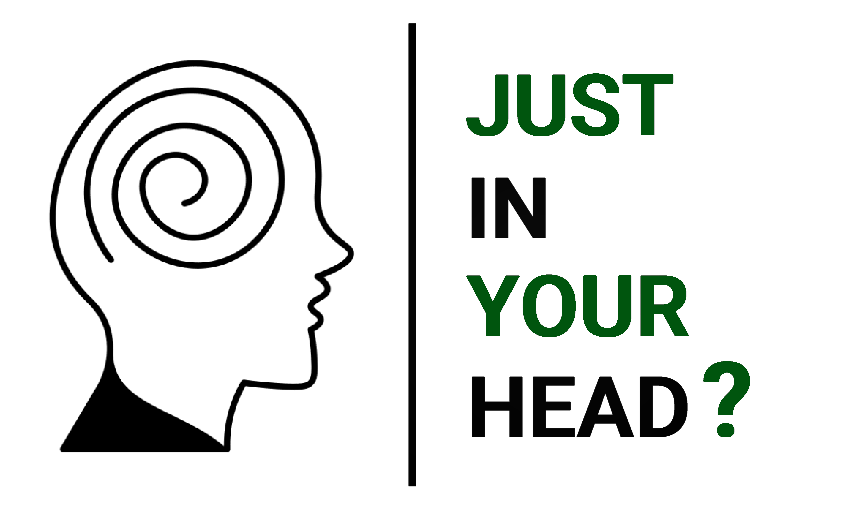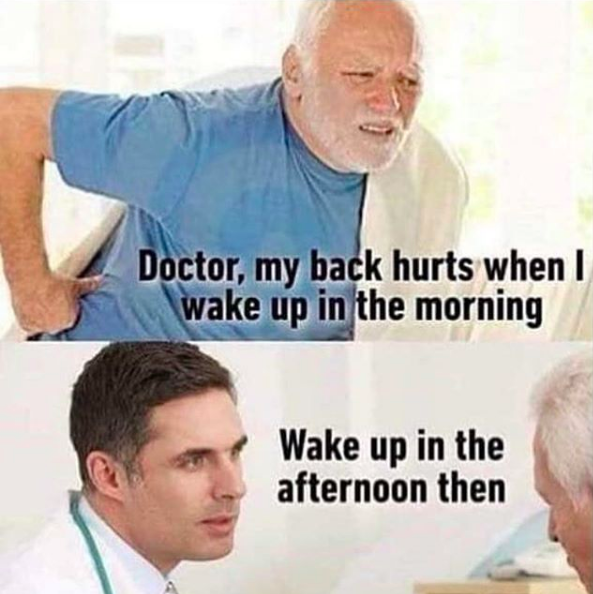Healing may not be linear
One of the important lessons I've learned is that healing often resembles a winding road rather than a straight path. While it can be highly individual, there definitely can be ups and downs - even after long periods of improvement, you may get worse again. It’s crucial to become aware of this non-linear nature of healing and prepare a solid, practical plan to navigate potential setbacks.

A support network. Not isolating yourself. Admitting how sick you are
It might sound trivial, but it is important that (at least some) people around you know how sick you are and understand your situation. Unfortunately, one needs to consider and realistically plan for what to do if the condition worsens. This is something I severely underestimated in the past. When my condition got much, much worse over the course of days and weeks, I was caught off guard, having no good and practically executable plan in place. Meanwhile, pretty much nobody knew or understood how sick I truly was. With my worsening symptoms including brain fog and weakness getting worse, being in the state of just barely surviving through days, I couldn’t organize the next steps - and even less so execute them. Communicating and explaining what was happening to me to others, whether to family or doctors became incredibly difficult. Thus, your social network is really important. Talk to your friends about your problems honestly. Let them know what you are experiencing. Try to find other people with problems like yours.

Is this helping me?
A simple approach (which however may lead to tricky dilemmas, I know!) - go over everything you do, eat, drink, think about, even think about all the people you spend your time with and doctors you visit. Then ask yourself a simple question:
Is this helping with my healing?
Or conversely: Isn't this damaging to my healing effort? If this hasn't helped me despite me having put a lot of energy and time in it, does it still make sense?
Am I putting enough effort into my healing? Am I not putting too much effort in things that are just hampering it or from which the benefits are just too small?
Don't get lost in details and fancy terms
While navigating chronic illness, it's easy to become consumed by minor symptoms, symptom fluctuation or minor test results parameters. In some cases, to be very attentive can be beneficial. It can contribute to solving the puzzle of what is wrong, what is triggering the symptoms and eventually help with pursuing the correct treatment. However sometimes focusing too closely on every little detail can lead to unnecessary anxiety, frustration and wasting one's energy. Especially when the basic outlines of the problem have already been established and the necessary diagnostic tests for serious deadly illnesses (in the common sense of the word) came negative.
Also there is another problematic area, one of asking questions that in the end don't lead anywhere, or which are obsessed with terminology or sorting into categories - even when it doesn't contribute to anything. One needs to keep in mind that the current "mainstream" medical terminology is just what it is - it is not complete or all encompassing and its description of symptoms relationships, more complex diagnoses, overall body condition or let's say microbiome condition is limited. When one forgets about that, their thinking might become dictated by the terminology and categorization itself, while missing links and insight that comes from going beyond this terminology.
There are also questions which focus on very specific parameters or processes in the body that may be interesting, but which at the end of the day can't even be addressed in isolation.
Or the frequent questions along the lines of (a bit exaggerated of course): "Can my symptom A occur with a frequency B, during C, after E, in location P when my friend with the same diagnosis name says it can only R while his doctor said it should P?"
An average list of symptoms or a short article for the specific diagnosis (or let's call it a diagnostic bucket) found after 5 seconds of googling may not (better said: it very likely won't) capture the complexity of the given diagnosis lumped into such diagnostic name by the medical system. Especially, it does not capture all the possible ways in which e.g. dysbiotic microbiome can manifest itself. Neither what happens when your individual physiology, circumstances, other conditions or diet comes into play.
So, all in all, even if diving deep and focusing on details is sometimes necessary, it is good to always maintain a broader perspective. Always getting your focus back on the overall picture and trends instead of nitpicking and splitting unimportant hairs goes a long way.
Examine your situation from a larger perspective
Consider your life as a whole, including your emotional, mental, and social well-being, your enviroment and circumstances. Reflecting on how different aspects of your life currently interact can provide valuable insights into your healing process.
It may also help to analyse your past life, psychology, behavior, relationships. Has there been any psychological factors, which contributed to you falling ill? What can be done to avoid repeating such behavior, thinking patterns, situations? What lessons can be taken?
Facing the brutal truth
One of the most difficult realizations to confront is this: if you don’t actively and consistently do what’s needed for your healing, you might end up wasting not just months - but entire years of your life. There’s no shortcut around this truth. Chronic illness doesn’t resolve itself through wishful thinking or passive hope. If you’re not doing enough - whether out of denial, fear, fatigue or whatever else - the illness doesn’t pause to wait for you. Time keeps moving. This isn’t about blame, but about ownership. Taking responsibility for your healing is harsh but necessary. It can mean making uncomfortable changes, re-evaluating your priorities, and letting go of habits or people that hinder progress.
The worst psychological aspect of my journey is thinking back and realizing how much more I could have done for my healing in the past, especially before my condition became much worse. You need to realize coldly that the cost you are paying is time from your life that you can never get back. You need to be absolutely serious and honest to yourself about your situation.
Listen to your body. Don't get gaslighted
First, don't try to push through anything! Respect the limits of your body and your condition. Otherwise you can end up making yourself a lot worse. Simple as that. I know something about that.
Second, if there is a problem, a symptom that you absolutely know is there and ruining your normal life - and you know it's there not because of your bad mental state, stress, overreacting or whatever similar - and your physician is trying to belittle it or convince you that what you are thinking is wrong, DO NOT allow them to do that. Yes, of course, you can give them a benefit of doubt, a couple of opportunities to start to understand and take you seriously. Also, if you are not taken seriously during your visits or you are too weak to explain and fight for yourself, take someone with you. Someone who doesn't let others walk all over them and who can be really assertive. I regret not making sure to follow this in the past.
However...
If you see your visits to a particular physician lead nowhere, don't hesitate. If it's at least a bit possible, part your ways with the physician who is not capable of understanding you, who is gaslighting you or downplaying your account. Find someone else. Better soon than later. Failure to do so could end up badly once they lose their patience with you or when you get worse and are still stuck with the same person who does not understand or acknowledge your problems.
The same applies to your friends, family or anyone else. But of course, the situation in these cases is more complex and the solution depends on various factors.
The herx is real
"Herxheimer", "herx" or "die-off" reaction occurs when toxins and various metabolites (but other mechanisms can be at play) are released as pathogens are dying off in body, leading to temporary worsening of symptoms.
When a protective biofilm containing microbes (e.g. bacteria or yeast) breaks down, it can release these microbes into the gut. When the integrity of these microbes becomes compromised, various substances may be released, which triggers an immune system inflammatory response, for example, lipopolysaccharide (LPS) released from bacteria or beta-glucans and mycotoxins from yeast (such as candida). As a side note, these microbes can produce problem-causing substances even without their integrity being compromised or them dying, so this reaction can be understood as a disruption of the prior balance, disturbing their comfort so to say.
This can lead to diverse symptoms including worsening fatigue, joint and muscle aches, fever, chills, headache, fast heart rate, a sense of anxiety, depression, tinnitus or skin manifestations.
Practically, herx means that any new treatment protocol can make you feel worse before you start to feel better. Becoming aware of the existence of herx and understanding that this reaction can be a sign of progress can help you stay hopeful and in control during difficult times.
In healthy people, detoxification pathways in their bodies and gut lining (likely) function as intended and thus, should be able to handle such a reaction reasonably well. However, in people who have been suffering from severe, long lasting gut problems, possibly having a high pathogen/biofilm load and an increased permeability of their gut lining, the chances are that a comparable pathogen die-off may lead to a more severe and longer lasting herx reaction.
In broader sense, even feeling worse on a new diet can be understood as a form of a herx - some microbes are getting starved and may die while others thrive, a complex battle takes place with various substances being released, with a complex interplay between the immune and neural system of the host and the changing microbiome.
On the other hand, while herx is real, it is important to add that not all negative reactions are necessarily herx. Feeling worse, particularly after introducing a new treatment can be caused by the treatment substance itself or in some cases, an allergic reaction to it. The distinction can be tricky to make. In any case, a worsening lasting for too long should raise a serious question if it should not be attributed to worsening as such instead of "hoping" it is a herx reaction.
Relaxing to heal?
There is two sides to this. If you have reached a stage where you are seriously sick and your biochemistry, immunity, microbiome and body as such is malfunctioning too severely, it might be the case that even if you tried to practice yoga and meditation 24/7, it would not make your problems improve.
I've been there - practicing yoga and relaxation techniques that ultimately did nothing and only lead to my frustration. I just desperately hoped that relaxing here and there could make my flawed body functioning switch itself back to a certain better functioning. I lacked the knowledge to address the deeper biological issues, I didn't know how target the problems in a complex way. Later my condition worsened. At that point, any kind of relaxing become impossible - my body, being in a constant tense, wired and tired state simply wouldn't allow it no matter how hard I tried.
The recommendation of "relaxing and improving thanks to it" can therefore vary in its meaningfulness. It really depends on the specific, individual condition. In certain severe cases, it may come across as an ignorant advice regardless of how well-meant it is, because the person just can't relax due to their symptoms.
Forcing yourself to relax - especially when it’s clearly not helping or even possible - just because people around you keep insisting that things will improve if you “just relax,” can lead to a lot of frustration, wasted time, and energy. All of that in the situation when energy should better be spent exploring other ways to address the symptoms.
But now comes the other part - if one has the ability - or regains the ability - to pursue any form of sensible relaxation, be it yoga, meditation, massages, tai chi, music therapy, they should definitely take that opportunity. Getting out of the fight-or-flight response can allow the body to improve its healing capacities and can play an important role in achieving better health. Relaxation techniques can serve you as a supportive foundation, enhancing the effectiveness of other elements in a broader treatment plan.
So, to conclude, if you can, relax. If you can't, due to the severity of your symptoms (or whatever circumstances you can't), then don't. If it's not possible for you to relax, don't beat yourself up over it.
On Accepting the Unknown
At some point in the healing journey, you may hit a wall of not-knowing. No lab test, practitioner, or theory can always fully explain everything that’s happening in your body. This ambiguity is terrifying - but sometimes also liberating. I had to learn to live with not having all the answers. To act based on intuition and careful observation, even when I didn’t fully understand the mechanism. And also to become friends with the fact that healing might come from a place I couldn’t predict.

